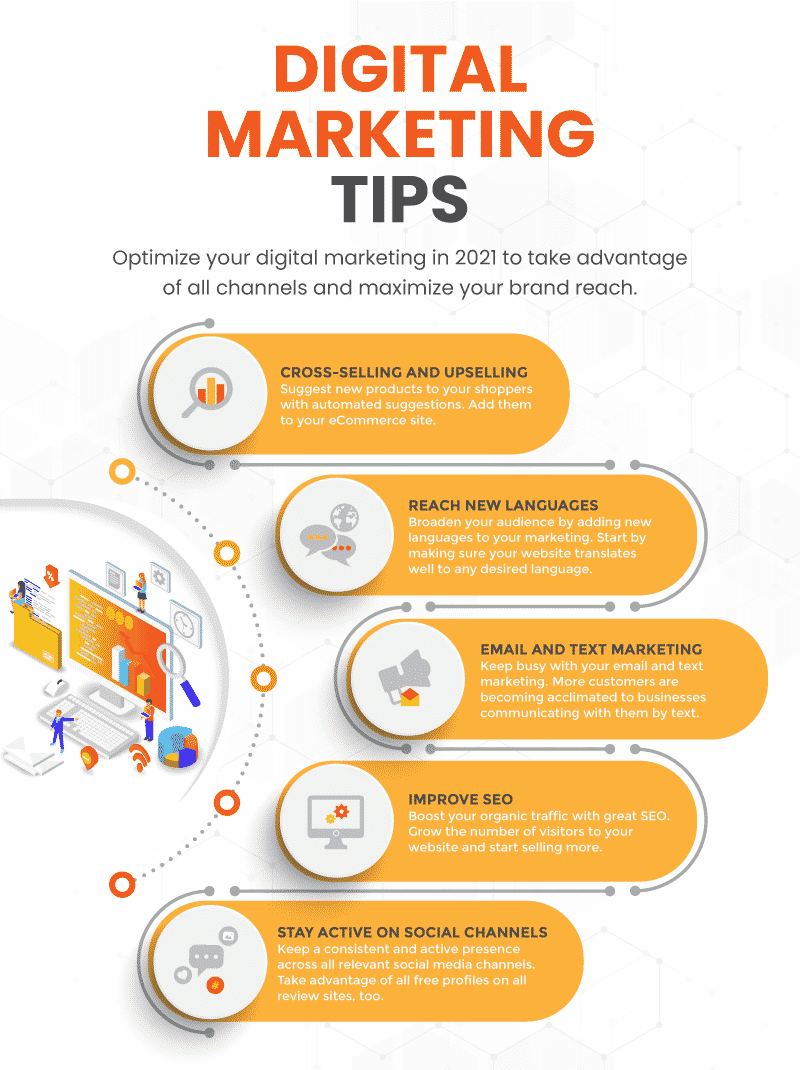
Contents
- 1 Why Small Businesses Should Invest in Digital Marketing
- 1.1 Identify Your Target Audience
- 1.2 Create a Professional Website
- 1.3 Utilize Social Media Platforms
- 1.4 Implement Search Engine Optimization (SEO)
- 1.5 Start a Blog
- 1.6 Invest in Pay-Per-Click (PPC) Advertising
- 1.7 Build an Email Marketing List
- 1.8 Collaborate with Influencers
- 1.9 Monitor and Analyze Your Results
- 2 Conclusion
Why Small Businesses Should Invest in Digital Marketing
In today’s digital age, having a strong online presence is crucial for the success of any small business. With more and more consumers turning to the internet to research and make purchasing decisions, it’s essential for small businesses to establish a robust digital marketing strategy. By investing in digital marketing, small businesses can effectively promote their products or services, build brand awareness, and reach a wider audience.
Identify Your Target Audience
Before diving into digital marketing, it’s important to identify your target audience. Understanding who your customers are and what they want will help you tailor your marketing efforts and create content that resonates with them. Conduct market research, analyze your competitors, and gather customer feedback to gain insights into your target audience’s preferences, needs, and pain points.
Create a Professional Website
A well-designed and user-friendly website is the foundation of your digital marketing strategy. It serves as a virtual storefront, allowing potential customers to learn more about your business and make informed decisions. Ensure that your website is visually appealing, easy to navigate, and optimized for mobile devices. Implement search engine optimization (SEO) techniques to improve your website’s visibility on search engines and drive organic traffic.
Utilize Social Media Platforms
Social media platforms such as Facebook, Instagram, and Twitter provide small businesses with a cost-effective way to connect with their target audience. Create engaging and shareable content that aligns with your brand’s voice and values. Use social media analytics tools to track your performance and gain insights into your audience’s preferences. Interact with your followers, respond to their comments, and encourage them to share your content to increase your reach.
Implement Search Engine Optimization (SEO)
SEO is a crucial aspect of digital marketing that helps small businesses improve their visibility on search engine results pages (SERPs). Conduct keyword research to identify relevant keywords that your target audience is using to search for products or services similar to yours. Optimize your website’s content, meta tags, and URLs with these keywords to rank higher on SERPs. Regularly update your website with fresh and valuable content to boost your search engine rankings.
Start a Blog
Starting a blog is an effective way to showcase your expertise, engage with your audience, and drive organic traffic to your website. Create high-quality and informative blog posts that provide value to your target audience. Share your blog posts on social media platforms and encourage your followers to share them as well. Engage with your readers by responding to their comments and answering their questions, establishing yourself as a trusted authority in your industry.
Invest in Pay-Per-Click (PPC) Advertising
PPC advertising allows small businesses to reach their target audience directly and drive immediate results. Set a budget for your PPC campaigns and choose relevant keywords to target. Create compelling ad copy and landing pages that entice users to click on your ads and take action. Monitor your PPC campaigns closely, analyze the results, and make necessary adjustments to optimize your return on investment (ROI).
Build an Email Marketing List
Email marketing is a powerful tool for nurturing leads, building customer loyalty, and driving repeat business. Offer valuable incentives such as exclusive discounts or free resources in exchange for your customers’ email addresses. Segment your email list based on customer preferences and behavior to deliver personalized and targeted content. Use email marketing automation tools to schedule and send automated emails, saving you time and effort.
Collaborate with Influencers
Influencer marketing can help small businesses expand their reach and gain credibility in their industry. Identify influencers who align with your brand’s values and have a sizable and engaged following. Reach out to them and propose a collaboration, such as sponsored content or product reviews. Authenticity is key, so ensure that the influencer’s audience is genuinely interested in your products or services.
Monitor and Analyze Your Results
Regularly monitor and analyze the performance of your digital marketing efforts. Use analytics tools to track website traffic, conversion rates, social media engagement, and email open rates. Identify what strategies are working well and what can be improved. Make data-driven decisions and adjust your digital marketing strategy accordingly to maximize your results.
Conclusion
Implementing effective digital marketing strategies is essential for small businesses to survive and thrive in today’s competitive landscape. By understanding your target audience, creating a professional website, utilizing social media platforms, implementing SEO techniques, starting a blog, investing in PPC advertising, building an email marketing list, collaborating with influencers, and monitoring your results, you can boost your online presence and drive success for your small business.


